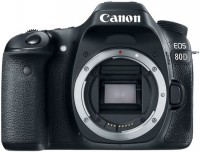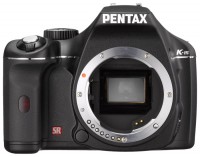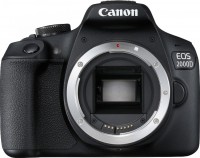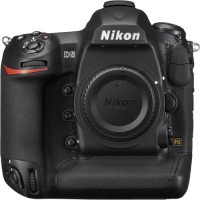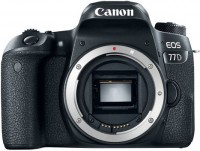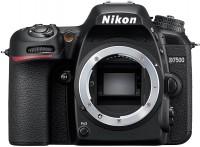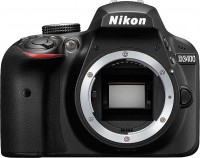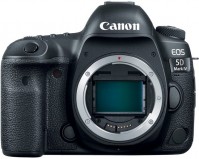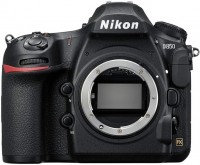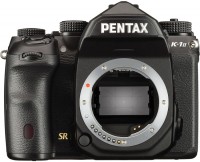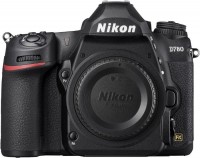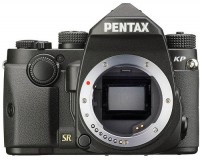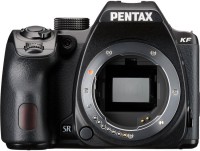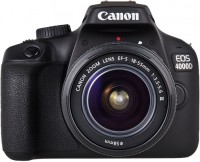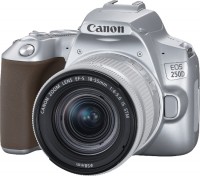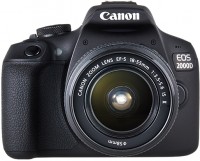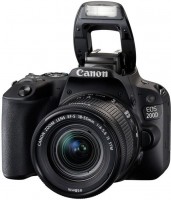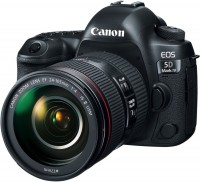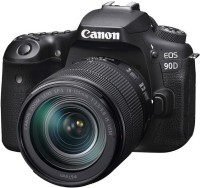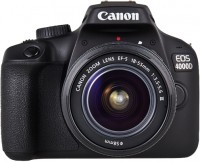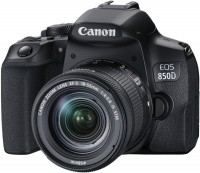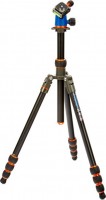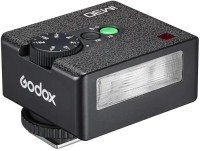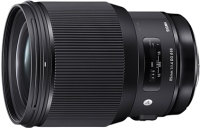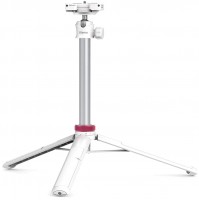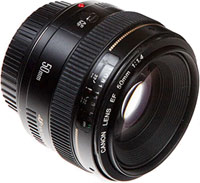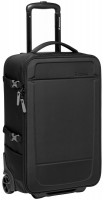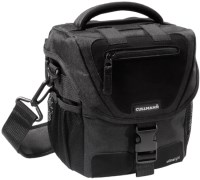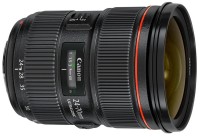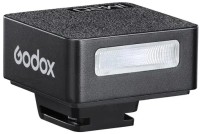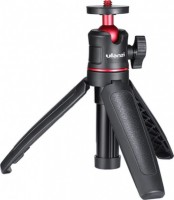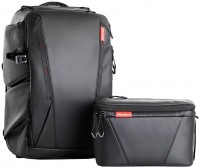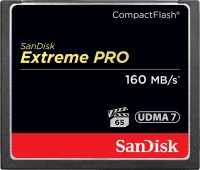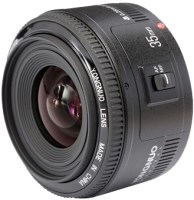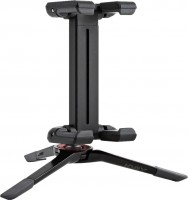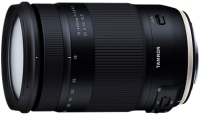Canon EOS 1Ds Mark II body
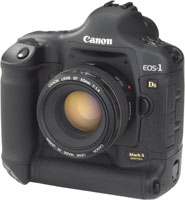 | Outdated Product $5,120.00 Sensor size: full frame; Effective MP number: 17.2; Manual focus; Image stabilization: is absent; White balance measuring; Auto bracketing; Viewfinder: optical (pentaprism); Continuous shooting (fps): 4; Screen ("): 2; Memory cards types: SD, CompactFlash; External flash connect; Power source: battery |
Canon EOS 1Ds Mark II body
Panel:full frame, 17.2 MPix
Snapshot size:4992 x 3328 px
ISO range:100-1600
Burst shooting:4 fps
Screen:2 ''
All specifications
Specifications EOS 1Ds Mark II body
|
| ||||||||||||||||||||||||||||||||||||||||||||||||||||||||||||||||||||||||||||||||||||||||||||||||||||||||||||||||||||||||||
The information in the model description is for reference purposes.
Always clarify the specifications and configuration of the product with the online store manager before purchasing.
Catalog Canon 2025 - new arrivals, bestsellers, and the most relevant models Canon.
Always clarify the specifications and configuration of the product with the online store manager before purchasing.
Catalog Canon 2025 - new arrivals, bestsellers, and the most relevant models Canon.
Video reviews
From the press release:
The EOS 1Ds Mark II is a DSLR with a 16.7 megapixel sensor in the size of a standard 35mm frame. The camera is designed for professional studio and commercial photography.
The EOS-1Ds Mark II with a full-frame 16.7-megapixel 36x24mm CMOS sensor produces images with excellent colour reproduction and wide dynamic range. Its resolution is sufficient to write files that are 50 MB in uncompressed TIFF format with a colour depth of 24 bits. Today, this size is the standard adopted by leading international photo agencies and publishers.
The successor to the successful 11.1-megapixel EOS 1Ds, the new camera is equipped with Canon's second-generation DIGIC II image processor and can shoot continuously at 4 fps in bursts of up to 32 frames in JPEG or up to 11 frames in RAW. An optional wireless adapter (released at the same time) provides a high speed wireless network connection according to the IEEE802.11b/g standard, as well as a 100 Mbps speed when connected to a wired LAN.
In addition to all the advantages of digital photography - such as immediate results and savings on film - the new model also has all the features of a 35mm camera, which Canon believes will attract the attention of many studio photographers. For the first time, inherent medium format image quality is combined with access to the world's widest selection of professional lenses ranging from 14mm to 1200mm.
Canon expects the camera to be used in areas such as fashion, automotive design, calendar photography, advertising, and architectural photography.
Key features of the camera:
The built-in low-pass filter in the 16.7-megapixel high-resolution full-frame sensor reduces false colours and moiré effects that can occur when shooting subjects with fine, regularly spaced details, such as fabrics. The second-generation DIGIC II processor ensures camera readiness in 0.3 seconds, high-speed continuous shooting, and simultaneous RAW and JPEG recording. Advanced image processing algorithms improve white balance, auto exposure and overall image quality. There is a choice between 4 levels of resolution and 10 levels of image quality in JPEG format. The EOS 1Ds Mark II natively supports sRGB and Adobe RGB colour spaces with custom saturation and hue, as well as five preset and two user-defined colour matrices. When working with Digital Photo Professional and RAW files, the Wide Gamut RGB colour space is also available. The white balance can be set within +/- 9 levels for blue/amber and magenta/green. White balance bracketing is provided in the range of +/- 3 levels.
The possibilities of a SLR camera in studio shooting
The Canon EOS System can work with over 60 EF lenses, including tilt-shift, macro lenses, super-telephoto lenses and lenses with Image Stabilization. The EOS-1Ds Mark II is compatible with all EX-series Speedlites, including dual macro flash units, and allows for a range of wireless master and remote flash options. For convenient shooting in vertical format (as with some medium format models), the camera can be equipped with an optional C.
Instant wireless image transfer
With an optional wireless network adapter that connects to the camera via an IEEE1394/Firewire interface, the photographer is completely free to roam as huge RAW files are automatically transferred to the studio's LAN¹ in seconds. “A London publisher can decorate a print-ready magazine cover with a photo just taken in a Milan studio,” says Mr. Jensen. “And once this level of speed becomes generally available, it is unlikely that anyone will want to risk and incur losses associated with delays in film development.”
The wireless network adapter supports both IEEE802.11b and IEEE802.11g wireless networking standards, and has a wired 100-Mbps Ethernet port for immediate, automatic data transfer to any WAN or LAN. The system supports all major encryption protocols and security features used in wireless networks.
Benefits of a CMOS sensor
The EOS-1Ds Mark II's CMOS sensor has lower noise and a wider dynamic range (the ability to capture finer colour transitions in shadows, midtones, and highlights) than other digital camera sensors. Canon is the only camera manufacturer with a history of significant research and investment in image sensor manufacturing, which has made CMOS sensor technologies for digital SLR cameras the backbone of the company's competitive advantage. CMOS sensors are used in a range of award-winning digital SLR cameras, including the EOS-1Ds, EOS-1D and EOS 10D. Canon's level of CMOS sensor development is so high that this is the third new sensor to be introduced to the market in the past year. The technology developed by Canon formed the basis of the autofocus system of EOS cameras first released in 1987, and for the image sensor, CMOS technology was first tested in 2000 in the EOS D30.
The EOS 1Ds Mark II is a DSLR with a 16.7 megapixel sensor in the size of a standard 35mm frame. The camera is designed for professional studio and commercial photography.
The EOS-1Ds Mark II with a full-frame 16.7-megapixel 36x24mm CMOS sensor produces images with excellent colour reproduction and wide dynamic range. Its resolution is sufficient to write files that are 50 MB in uncompressed TIFF format with a colour depth of 24 bits. Today, this size is the standard adopted by leading international photo agencies and publishers.
The successor to the successful 11.1-megapixel EOS 1Ds, the new camera is equipped with Canon's second-generation DIGIC II image processor and can shoot continuously at 4 fps in bursts of up to 32 frames in JPEG or up to 11 frames in RAW. An optional wireless adapter (released at the same time) provides a high speed wireless network connection according to the IEEE802.11b/g standard, as well as a 100 Mbps speed when connected to a wired LAN.
In addition to all the advantages of digital photography - such as immediate results and savings on film - the new model also has all the features of a 35mm camera, which Canon believes will attract the attention of many studio photographers. For the first time, inherent medium format image quality is combined with access to the world's widest selection of professional lenses ranging from 14mm to 1200mm.
Canon expects the camera to be used in areas such as fashion, automotive design, calendar photography, advertising, and architectural photography.
Key features of the camera:
- 16.7 megapixels and 36x24mm standard frame CMOS sensor
- Ready to work time - 0.3 s, continuous shooting speed - 4 frames per second
- ISO sensitivity range 100-1600, expandable to L:50 and H:3200
- Digital Photo Professional v1.5 RAW file processing software supporting sRGB, Adobe RGB and Wide Gamut RGB colour spaces, as well as a range of European, North American and Japanese standard CMYK colour separations
- High-speed FireWire and USB interfaces, video output: all connectivity options
- Dual high-speed SD and CF/CF-II card slots (supports cards over 2 GB)
- Fully compatible with all EF lenses and EX-series Speedlites
- 2-inch LCD monitor with 230K pixels, 1.5-10x magnification in playback mode
- Simultaneous RAW and JPEG recording
- Battery life of approximately 1200 shots at 20°C and approximately 800 shots at 0°C according to CIPA standard test methods
The built-in low-pass filter in the 16.7-megapixel high-resolution full-frame sensor reduces false colours and moiré effects that can occur when shooting subjects with fine, regularly spaced details, such as fabrics. The second-generation DIGIC II processor ensures camera readiness in 0.3 seconds, high-speed continuous shooting, and simultaneous RAW and JPEG recording. Advanced image processing algorithms improve white balance, auto exposure and overall image quality. There is a choice between 4 levels of resolution and 10 levels of image quality in JPEG format. The EOS 1Ds Mark II natively supports sRGB and Adobe RGB colour spaces with custom saturation and hue, as well as five preset and two user-defined colour matrices. When working with Digital Photo Professional and RAW files, the Wide Gamut RGB colour space is also available. The white balance can be set within +/- 9 levels for blue/amber and magenta/green. White balance bracketing is provided in the range of +/- 3 levels.
The possibilities of a SLR camera in studio shooting
The Canon EOS System can work with over 60 EF lenses, including tilt-shift, macro lenses, super-telephoto lenses and lenses with Image Stabilization. The EOS-1Ds Mark II is compatible with all EX-series Speedlites, including dual macro flash units, and allows for a range of wireless master and remote flash options. For convenient shooting in vertical format (as with some medium format models), the camera can be equipped with an optional C.
Instant wireless image transfer
With an optional wireless network adapter that connects to the camera via an IEEE1394/Firewire interface, the photographer is completely free to roam as huge RAW files are automatically transferred to the studio's LAN¹ in seconds. “A London publisher can decorate a print-ready magazine cover with a photo just taken in a Milan studio,” says Mr. Jensen. “And once this level of speed becomes generally available, it is unlikely that anyone will want to risk and incur losses associated with delays in film development.”
The wireless network adapter supports both IEEE802.11b and IEEE802.11g wireless networking standards, and has a wired 100-Mbps Ethernet port for immediate, automatic data transfer to any WAN or LAN. The system supports all major encryption protocols and security features used in wireless networks.
Benefits of a CMOS sensor
The EOS-1Ds Mark II's CMOS sensor has lower noise and a wider dynamic range (the ability to capture finer colour transitions in shadows, midtones, and highlights) than other digital camera sensors. Canon is the only camera manufacturer with a history of significant research and investment in image sensor manufacturing, which has made CMOS sensor technologies for digital SLR cameras the backbone of the company's competitive advantage. CMOS sensors are used in a range of award-winning digital SLR cameras, including the EOS-1Ds, EOS-1D and EOS 10D. Canon's level of CMOS sensor development is so high that this is the third new sensor to be introduced to the market in the past year. The technology developed by Canon formed the basis of the autofocus system of EOS cameras first released in 1987, and for the image sensor, CMOS technology was first tested in 2000 in the EOS D30.



